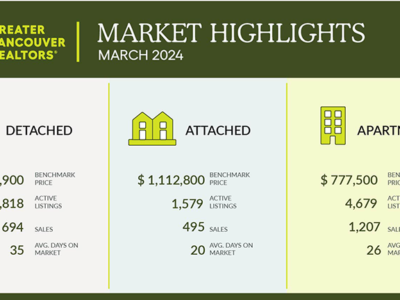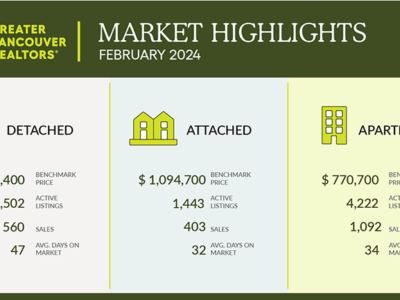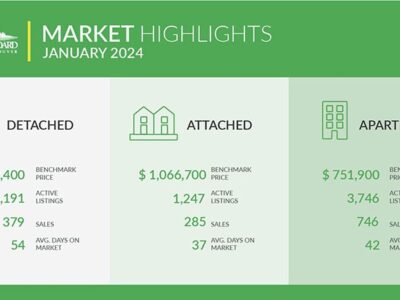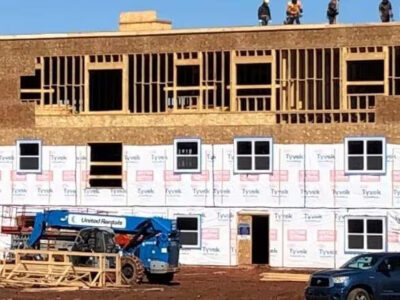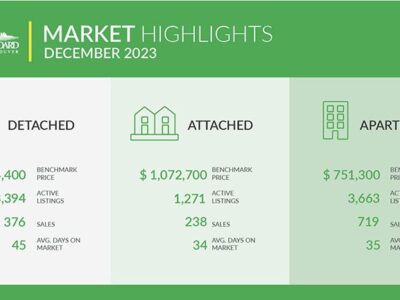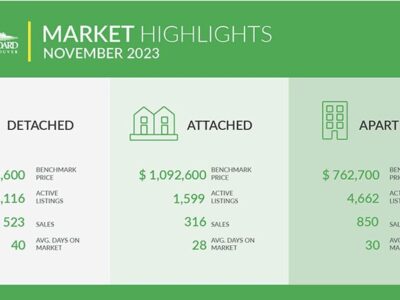BY PATRICK PENNER, LOCAL JOURNALISM INITIATIVE REPORTER ● COQUITLAM, HOUSING, PORT COQUITLAM, PORT MOODY ● JANUARY 8, 2024
Housing cost increases in the Tri-Cities were significant in 2023 despite a slump over the last six months.
It now costs more than $2 million to purchase an average single-family home in Port Moody, nearly $1.8 million in Coquitlam, and $1.4 million in Port Coquitlam, the price increasing over 7 percent through the calendar year.
The Real Estate Board of Greater Vancouver (REBGV) released their year-end statistics last week, describing “balanced market conditions” regionally as the 2023 came to a close.
Despite sales and new listings being well below their 10-year averages, the board said the real story was “surprising resilience in the face of the highest borrowing costs seen in over a decade.”
Andrew Lis, REBGV’s director of economics and data analytics, said the five-percent plus gains in home prices across all housing types in Metro Vancouver shows the region remains attractive for buyers.
“You could miss it by just looking at the year-end totals, but 2023 was a strong year for the Metro Vancouver housing market considering that mortgage rates were the highest they’ve been in over a decade,” Lis said. “Elevated borrowing costs alone aren’t enough to dissuade buyers determined to get into this market.”
Prices in the Tri-Cities saw a meteoric rise in the first half of the year, surpassing the highs seen during the COVID-19 pandemic, and recovering from the shocks felt immediately after the Bank of Canada began increasing interest rates.
For the year-end total: the largest price increases occurred for Port Moody apartments at 8.1 percent, now averaging for $735,000; while single-family homes were the biggest winners among property types, with the median price increase being 7.3 percent across the Tri-Cities.
But benchmark prices for most property types in the region, including the Tri-Cities, have taken a break from growth over the last six months.
In the Tri-Cities, townhome prices have been hit that hardest over the past six months. Townhome prices are down 4.6 percent in Coquitlam, down 5.1 percent in Port Coquitlam, and 2.5 percent in Port Moody.
Similarly, apartment prices are down in Coquitlam and Port Coquitlam, 3.5 and 3.1 percent, respectively, while Port Moody apartments prices have seen a slight bump of 0.9 percent.
Single-family home prices have been the most stable over the six-month slump, with Port Moody showing gains of 2.7 percent, Coquitlam down half a point, and Port Coquitlam down 2.9 percent.
Sales and new listing in Metro Vancouver are down significantly for the year, however.
Regional sales totalled just over 26,000 in 2023: 23.4 percent below the 10-year average, a 10.3 percent decrease from total 2022 sales, and a 41.5 percent decrease from 2021 sales.
The number of new listings regionally totalled nearly 51,000 in 2023: down 10.5 percent in 2023 compared to the 10-year average, a 7.5 percent decrease from 2022, and a 20 percent decrease from 2021.
In the Tri-Cities, both the total real estate sales (3,690) and number of new listings (6,319) in 2023 fell by 9 percent compared to the previous year.
Lis said the market story of 2023 is too few homes relative to qualified buyers. He said that sellers were cautious at the start of the year leading to a slow sales start, which in turn led to near-record low inventory by spring, causing prices to spike.
“Looking back on the year, it’s hard not to wonder how we’d be closing out 2023 if mortgage rates had been a few percent lower than they were,” he said. “And it looks like we might get some insight into that question in 2024, as bond markets and professional forecasters are projecting lower borrowing costs are likely to come, with modest rate cuts expected in the first half of the New Year.”
There are nearly 9,000 active listings with REBGV, a 13 percent increase compared to last year, and slightly above the 10-year average.
- Credit: Patrick Penner, Local Journalism Initiative Reporter Tri-Cities Dispatch

